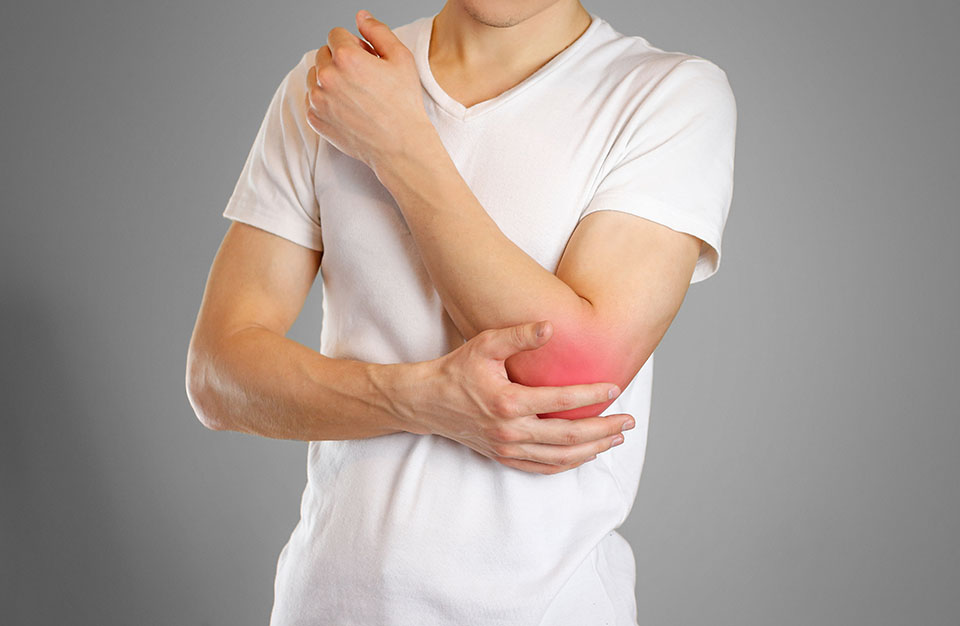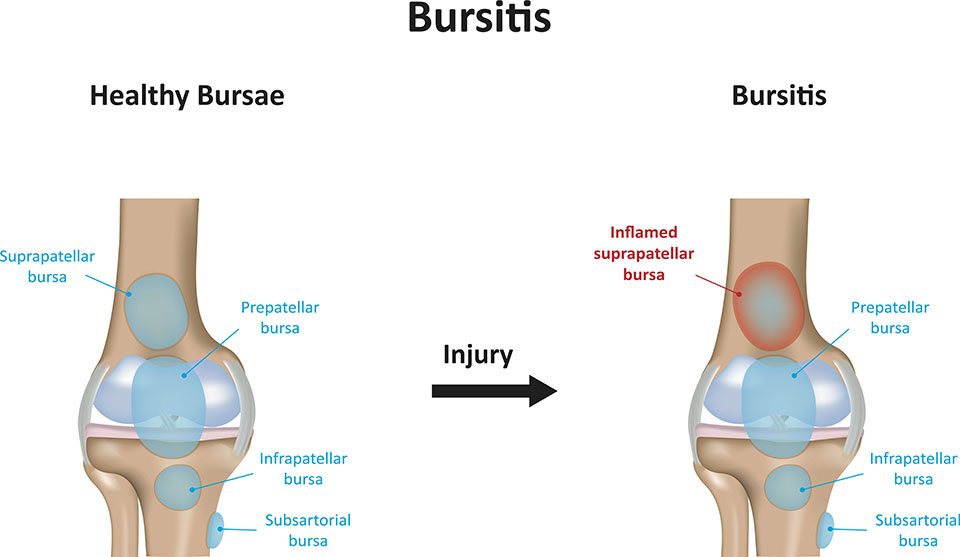
Bursitis | How Do You Treat & Prevent It?
Monday, June 4, 2018
What is Bursitis?
Bursitis is the irritation or inflammation of the Bursa. A Bursa is a small fluid filled sac which are located at the points in the body where a muscle or tendon slides across a bone. A Bursa acts as a reducer of friction between the two moving surfaces. It plays a key role in the correct movement of the joints.
When a bursa becomes inflamed, it swells, causing an increase in friction with the tendon its supposed to protect. Usually if a bursa is inflamed, the tendon associated with it is also irritated. Causes of bursitis include: overuse of the joint, repetitive strain, trauma, pressure, bacterial infection and other inflammatory diseases.
Well known places for bursitis include:
- Hip or tronchateric bursitis
- Shoulder bursitis
- Knee bursitis
- Elbow bursitis
- Achilles bursitis
Bursitis can usually be diagnosed through physically examining the patient. On inspection the patient will demonstrate redness and warmth over the inflamed bursa, local tenderness and swelling. Ultrasound can be used to determine the presence of bursitis.

How to Prevent Bursitis
- Elbow and knee bursitis often occurs due to the bursa being compressed or knocked. Use of protective and effective coverings of these joints can reduce the risk of irritation.
- Achilles bursitis can be further irritated by shoes rubbing over the bursa. Wearing appropriate shoes, which help to decrease the compression is beneficial.
- Hip and trochanteric bursitis is usually occurs due to weakness of the muscles supporting the structure the bursa is trying to protect. Due to the weakness the bursa becomes continually compressed by the structure it is trying to reduce the pressure on.
Treatment of Bursitis
- Drugs like corticosteroids are often used as a treatment, however research shows it is no more effective than treatment undertaken with a physiotherapist.
- Strengthening the musculature around hip and shoulder is effective in reducing hip and shoulder bursitis. Seeing a physiotherapist to receive a specific program to ensure that the bursa is not further inflamed.
- In septic bursitis, antibiotics and aspiration are treatment options.
If your condition worsens or doesn't improve within a week, see your local Physio Inq Physiotherapist. for specific treatment & exercises that are proven to eradicate your pain, capacity to movement plus avoid further damage or reoccurrence of your bursitis.
